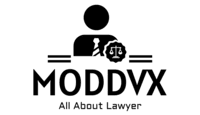Divorce can be one of the most challenging experiences in life, marked by emotional turmoil and complex legal issues. Choosing the right divorce lawyer is crucial to ensure that your interests are protected and that the process goes as smoothly as possible. Here are some key steps and considerations to help you select the best attorney for your case.
1. Understand Your Needs
Before you start looking for a lawyer, it’s essential to understand your specific needs. Consider factors such as:
- Complexity of the Case: Do you have significant assets, businesses, or debts to divide? Are there child custody issues?
- Budget: How much can you afford to spend on legal fees?
- Personal Preferences: Do you prefer a lawyer who is aggressive or one who aims for amicable settlements?
2. Research Potential Lawyers
Start by gathering a list of potential lawyers. You can do this by:
- Referrals: Ask friends, family, or colleagues who have been through a divorce for recommendations.
- Online Reviews: Check websites like Avvo, Martindale-Hubbell, and Google reviews to see what others say about the lawyers.
- Professional Associations: Look at the websites of professional associations like the American Bar Association or your state’s bar association for accredited lawyers.
3. Evaluate Their Experience and Expertise
Not all lawyers have the same level of experience or specialize in the same areas. Consider the following:
- Specialization in Family Law: Ensure the lawyer specializes in family law and has significant experience in divorce cases.
- Track Record: Look into their success rate and the types of cases they typically handle.
- Continuing Education: Check if they stay updated with the latest developments in family law through continuing education.
4. Schedule Initial Consultations
Once you have a shortlist, schedule consultations with each lawyer. Most offer a free or low-cost initial consultation. During these meetings, consider the following:
- Communication Style: Do they listen to you and understand your concerns? Are they clear and concise in their explanations?
- Approach to Divorce: Do they favor litigation or mediation? Make sure their approach aligns with your preferences.
- Availability: Will they be available when you need them? How quickly do they respond to emails and phone calls?
5. Ask the Right Questions
Prepare a list of questions to ask during your consultations. Some important questions include:
- How long have you been practicing family law?
- What is your experience with cases similar to mine?
- What are your rates and billing practices?
- How do you approach negotiation and conflict resolution?
- Can you provide references from past clients?
6. Consider Your Comfort Level
It’s crucial to choose a lawyer you feel comfortable with, as you will be sharing personal and sensitive information with them. Trust your instincts during the consultation. If you feel uneasy or pressured, it might be a sign to look elsewhere.
7. Review Costs and Fees
Understanding the financial aspect is critical. Divorce can be expensive, and legal fees vary widely. Make sure you:
- Understand Their Fee Structure: Lawyers may charge hourly rates, flat fees, or retainer fees. Ensure you understand what each fee covers.
- Get a Written Agreement: Before hiring, get a detailed written agreement outlining the fees and payment terms.
8. Check References and Reviews
Finally, check the lawyer’s references and online reviews. Contact past clients to ask about their experiences and whether they were satisfied with the lawyer’s services. This can provide valuable insight into what you can expect.
FAQS
Q1: How much does a divorce lawyer typically cost?
A: The cost of a divorce lawyer can vary widely depending on factors such as their experience, the complexity of your case, and your location. Lawyers may charge an hourly rate, a flat fee, or a retainer. Hourly rates can range from $150 to $500 or more, while flat fees and retainers vary based on the specifics of your case.
Q2: What is the difference between mediation and litigation in a divorce?
A: Mediation involves a neutral third party helping both spouses reach a mutually agreeable settlement, often leading to a less adversarial and more cost-effective process. Litigation, on the other hand, involves taking the case to court, where a judge makes the final decisions on contested issues, often resulting in a longer and more expensive process.
Q3: How long does the divorce process take?
A: The duration of the divorce process depends on various factors, including the complexity of the case, the level of conflict between spouses, and the court’s schedule. An uncontested divorce may take a few months, while a contested divorce with significant disputes can take a year or more to resolve.
Q4: Can I change my lawyer during the divorce process?
A: Yes, you have the right to change your lawyer at any point during the divorce process if you are not satisfied with their services. However, consider the timing and potential impact on your case, as changing lawyers can cause delays and additional costs.
Q5: What should I bring to the initial consultation with a divorce lawyer?
A: For the initial consultation, bring any relevant documents such as prenuptial agreements, financial statements, tax returns, details of assets and debts, and any correspondence related to the divorce. Having this information will help the lawyer understand your case better and provide more accurate advice.
Q6: How can I ensure my privacy during the divorce process?
A: To ensure privacy, discuss confidentiality measures with your lawyer. They can advise on how to protect sensitive information and handle communications discreetly. Additionally, be cautious about sharing details of your case on social media or with acquaintances.
Q7: What if my spouse and I agree on most issues?
A: If you and your spouse agree on most issues, you may consider an uncontested divorce, which can be quicker and less costly. Even in an uncontested divorce, it’s advisable to have a lawyer review the agreement to ensure your rights and interests are adequately protected.
Conclusion
Choosing the right divorce lawyer requires careful consideration and thorough research. By understanding your needs, evaluating potential lawyers, and asking the right questions, you can find a lawyer who will effectively advocate for your interests and help you navigate this challenging time. Remember, the right lawyer can make a significant difference in the outcome of your divorce, so take the time to choose wisely.


